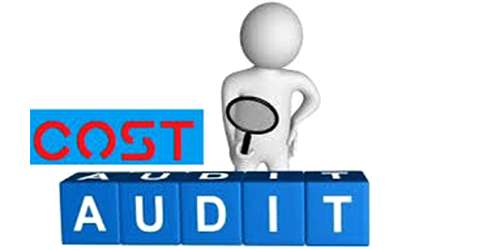Financial Audit is the examination of financial record and business accounts by an independent body which is conducted for compliance, taxation or for disclosure purposes and ensures high accuracy in the given reports. It is a systematic unbiased examination of a company or institution’s finance books and records, so as to express the opinion on it. Cost Audit is the verification of accounts and cost records and a careful compliance accounting process. It is an independent examination of the correctness of the cost statements and accounts and its conformity with the cost accounting plan.
Difference between Financial Audit and Cost Audit
Financial Audit
- Act: Financial audit is mandatory for all companies registered under the Companies Act, 1991.
- Objective: The financial audit is done to report on the financial data, consisting of a statement of the balance sheet and profit and loss to ensure fairness of business perspectives. More emphasis is given to compliance with the financial statement with the accounting standards and effectiveness of the internal control system.
- Appointment: Financial Auditor is appointed by shareholders.
- Mandatory: Financial audit is mandatory to be conducted every year. It is the examination of financial records and business accounts by an independent body which is conducted for compliance, taxation or for disclosure purposes and ensures high accuracy in the given reports.
- Demand: Financial audit is the door or conducted as per the demand of the shareholders.
- Stock: The financial auditor has to chock or examines carefully and in detail the exact value of closing the stock for the purpose of the balance sheet.
- Remark: The financial auditors have to give their remarks about the exact expenditures shown on the record. They analyses a company’s financial statements, account books, accounting records, vouchers, documents, notes to accounts, etc. to check the correctness of the entries made in the books and its compliance with the accounting standards.
- Submission: The finance auditor submits the report at the annual general meeting organized by shareholders. They have to check or examine carefully and in detail the exact value of closing the stock for the purpose of the balance sheet.
Cost Audit
- Act: Only in the cast of companies involved in the manufacture or mining business and required to maintain Cost Accounts as per Section 209.
- Objective: Cost audit is done to certify after careful examination or checking of reports on expenditure made on the production of intended items. The emphasis is laid on the analysis of the efficiency of operations and the propriety of actions of the management.
- Appointment: Cost Auditor is appointed by the board of directors with the previous approval of the Central Government.
- Mandatory: Cost Audit is conducted in a year in which an audit is required by the government. It is the verification of accounts and cost records and careful compliance with the cost accounting process.
- Demand: Cost audit is done when the government or industrial organization proposes to make an audit.
- Stock: In cost, audit the auditor has to see whether there is sufficient stock maintaining in order to fulfill the needs of the business concern.
- Remark: The cost auditors have to give their remarks about how correctly or wisely the decisions have been taken in the production of items. They analyses the cost records, cost books, cost statements and cost accounts, to ascertain whether they are in line with the company’s cost accounting system.
- Submission: Cost auditor submits the report to the company and central government within 180 days from the end of the financial year. The auditor has to see whether there is sufficient stock maintaining in order to fulfill the needs of the business concern.















